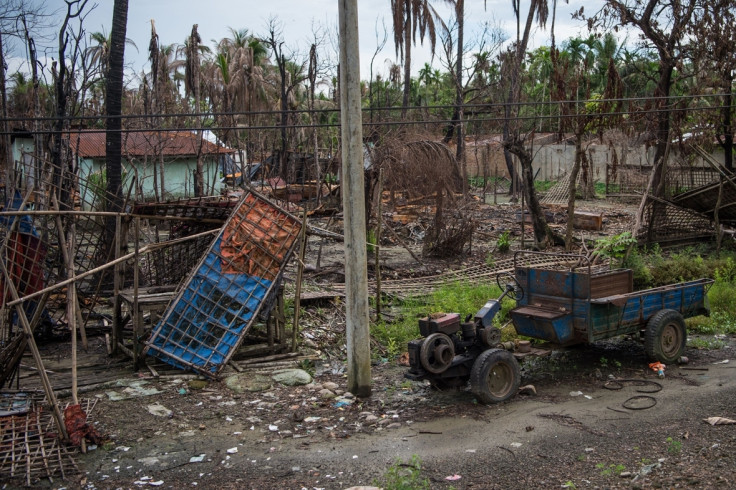Myanmar police seize 3 million meth pills in Rakhine during operation against Rohingya militants
It was the largest haul in the area since police launched statewide anti-narcotics operation in February.
Myanmar police have reportedly seized more than $5m (£3.7m) worth of methamphetamine pills during raids in the northern state of Rakhine.
Millions of meth tablets were intercepted in Maungdaw district, the centre of an army-led crackdown that has prompted hundreds of thousands of Rohingya Muslims to flee the country in recent months.
"We have seized 3,563,355 stimulant tablets from five drugs trafficking cases starting from this month in Maungdaw," local anti-drugs officer Maung Maung Yin told AFP.
He added that the seizure was the largest haul in the area since police launched a statewide anti-narcotics operation in February. Seven men from the Rakhine ethnic group were arrested in connection with the trafficking.
"We seized these drugs while we were working to enforce tight security in the area because of the situation," Maung added in reference to a military operation launched in August.
The crackdown, described as "clearance operations" to identify and root out any fighters found in villages across Rakhine, began after attacks by Rohingya insurgents killed at least 12 people in the state.
More than 500,000 Rohingya fled to neighbouring Bangladesh to escape the military operation, which the UN said may amount to ethnic cleansing, a claim that Myanmar has strongly denied.
The Rohingya have been dubbed as one of the world's most persecuted ethnic minorities. They live in segregated conditions in the Buddhist-majority Myanmar, where they are regarded as stateless people and unwelcome migrants from Bangladesh. They routinely flee the country to escape alleged persecution from the state.
The country's de facto leader, Aung San Suu Kyi, faced scathing criticism for her prolonged silence and perceived inaction to resolve the crisis.
In her first address on the situation earlier in September, Suu Kyi condemned human rights abuses, but failed to address UN accusations of ethnic cleansing.
In her speech, Suu Kyi did not use the word "Rohingya". She later explained she thought it was too "emotive" and "highly charged" for an already affected population.























